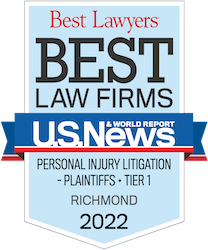When you suffer personal injuries because of another person’s or company’s negligence, it seems as though it takes forever to recover damages. Some claims could settle in as little as a month, while others end up at trial. If a claim has to go to trial, it will take longer. And, once you win a settlement or trial award, there is more waiting—but luckily not for too long.
Contact a Personal Injury Lawyer

The first step is to find a personal injury lawyer who you believe will represent your interests to the best of their ability. Most people research lawyers online and create a shortlist to meet face-to-face. Schedule a free case evaluation with those attorneys as soon as possible. The sooner you choose a personal injury attorney, the sooner the firm can start working on your case.
Investigations
Once you retain a personal injury attorney, you will review and sign a contingency contract. A contingency agreement allows the attorney to begin services without payment upfront, and they will only get paid if they are successful with your claim. Once signed, the attorney and their team of experts start investigating your case.
A case investigation might include:
- Accident reconstruction.
- Locating witnesses and defendants.
- Deposing witnesses and defendants.
- Reviewing medical records.
- Discussing medical records and the consequences of your injuries with medical professionals who can testify in court if necessary.
Once the attorney grasps what happened, who is responsible for your damages, and the extent of your injuries, they can draft a demand letter to open settlement negotiations with the defendants and their insurance companies. This phase could take time.
How do Settlement Negotiations Work?

The demand letter gives the defendants a respond-by date. If the defendant does not respond within the allotted time, your attorney must prepare to litigate the case.
If the insurer responds to the demand letter, it might deny your claim, offer you a lower amount, or accept your demand.
What if they do not accept the demand?
The case will likely proceed to trial, or The defendant could make a counteroffer.
What if the offer is too low?
If the counteroffer is too low, you do not have to accept it. You can counteroffer or advise the defendant that you will take the case to court.
Settlement negotiations vary in length, depending on how often the attorneys go back and forth to come to a fair and reasonable amount.
Litigating a Personal Injury Claim
If you must litigate your claim, it takes some time to get everything started. If the attorney has everything they believe is needed to prove your case, they will draft a complaint.
Once they complete the complaint and you sign off on it:
- The attorney files the complaint in civil court.
- At the same time, the court signs a summons.
- A process server must locate the defendant to serve them.
- After the defendant receives the documents, they have a set number of days to respond, up to 30 days, depending on the state. Virginia gives defendants 21 days to respond.
- The defendant files an answer.
- The discovery process starts. This phase could take 21 days to several months, depending on how cooperative the defendant is and how the defendant must obtain the documents.
- After discovery, the lawyers schedule a depositions.
- Before the trial, the lawyers file any pretrial motions about any potential evidentiary or legal issues that are expected at trial.
- The trial begins and could take hours or days.
- The court (during a bench trial) or the jury renders its verdict, including the amount and type of compensation, especially if the losing team has no conflict of interest.
After the Settlement or Jury Trial
Once you win a settlement or jury trial, the attorney—usually for the losing side—drafts a settlement agreement or a final judgment. The other attorney must review the document before sending it for signatures. If the plaintiff, defendant, or attorneys request changes, the attorney makes the changes and then forwards the document for review again.
Once all parties are satisfied that the document reflects the settlement terms or the court’s order:
- The plaintiff and defendant sign the settlement agreement.
- The attorney forwards a proposed final judgment to the court for the judge’s signature.
Once the defendant receives signed copies of the settlement or the final judgment, they process the document and cut a check for the appropriate amount. The defendant forwards the check to your attorney, who then deposits it in an escrow account.
Your attorney cannot take the next step until the check clears the bank. Depending on the check’s amount and the bank’s policies, clearing could take up to 14 days.
Once the check clears, your attorney:
- Pays any outstanding medical expenses you have.
- Reimburses your health or vehicle insurance companies if you used them to cover medical expenses during the pendency of settlement negotiations or the trial.
- Deducts attorneys fees and costs as agreed to in the contingency agreement you signed.
- Cuts a check for the remainder and forwards it to you.
Once you receive the check, you are free to deposit it and spend it as you wish.
Your claim should have included future expenses, so the check will cover future medical expenses and lost wages if you have catastrophic injuries. Once a settlement or trial finishes, you cannot request more money. Thus, you should spend the money wisely if your injuries cause long-term or permanent disabilities.
If you suffered injuries or lost a loved one because of another person's negligence, you could recover compensation for your losses. An injury claim can cover medical expenses, lost wages, loss of future earning capacity, loss of quality of life, pain, and suffering. Contact a personal injury attorney as soon as possible after an accident for a free case evaluation and begin your pursuit of the recovery you deserve.

